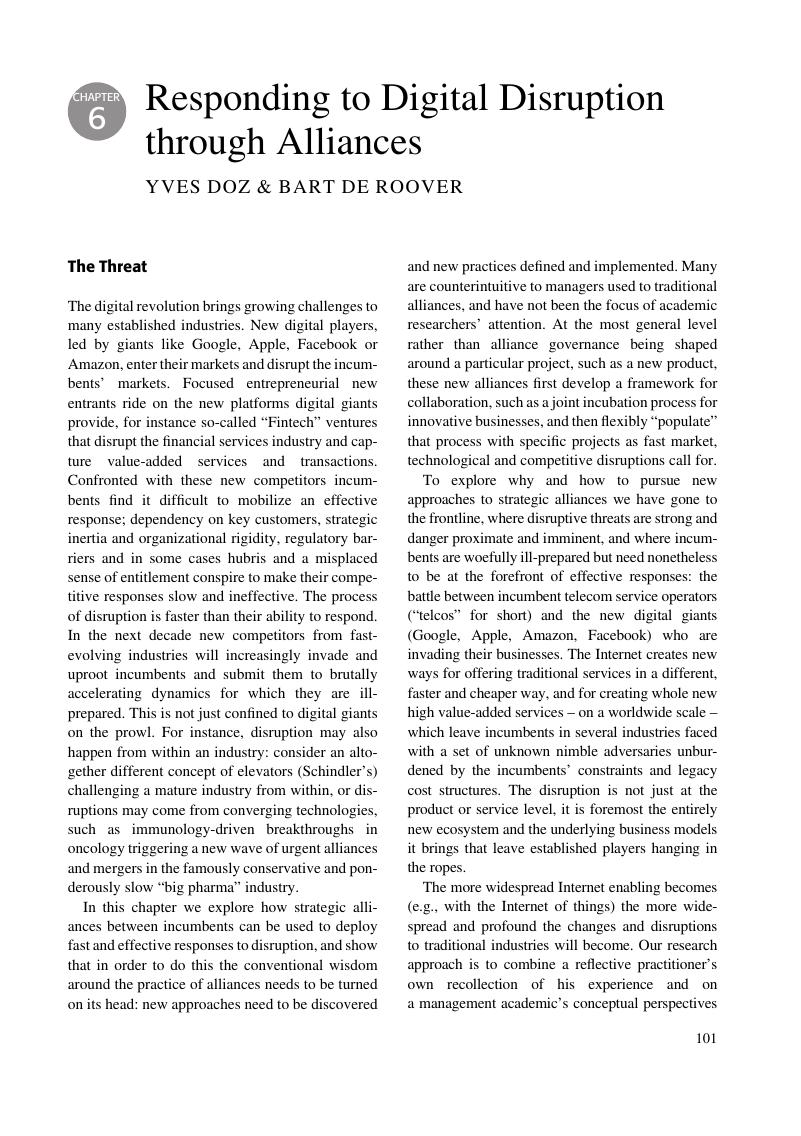Book contents
- Frontiers of Strategic Alliance Research
- Frontiers of Strategic Alliance Research
- Copyright page
- Dedication
- Contents
- Figures
- Tables
- Contributors
- Preface
- Part I Theory and Future Directions in Alliance Research
- Part II Alliances in the Context of Rapid Technological Change and Disruptions
- 6 Responding to Digital Disruption through Alliances
- 7 Performance Differences of Jointly Owned Firms in the US Electronics Sector
- Part III Microfoundational Processes and Coordination between Partners
- Part IV Alliance Management Capability
- Part V Alliance Scope
- Part VI Alliance Portfolios and Multilateral Alliances
- Part VII Multimarket Competition and Multinational Alliances
- Part VIII Innovation Networks and Alliances
- Part IX Fostering Trust and the Impact of Culture
- Part X The Evolution, Survival or Termination of Alliances
- Part XI Public–Private Partnerships
- Index
- References
6 - Responding to Digital Disruption through Alliances
from Part II - Alliances in the Context of Rapid Technological Change and Disruptions
Published online by Cambridge University Press: 01 March 2019
- Frontiers of Strategic Alliance Research
- Frontiers of Strategic Alliance Research
- Copyright page
- Dedication
- Contents
- Figures
- Tables
- Contributors
- Preface
- Part I Theory and Future Directions in Alliance Research
- Part II Alliances in the Context of Rapid Technological Change and Disruptions
- 6 Responding to Digital Disruption through Alliances
- 7 Performance Differences of Jointly Owned Firms in the US Electronics Sector
- Part III Microfoundational Processes and Coordination between Partners
- Part IV Alliance Management Capability
- Part V Alliance Scope
- Part VI Alliance Portfolios and Multilateral Alliances
- Part VII Multimarket Competition and Multinational Alliances
- Part VIII Innovation Networks and Alliances
- Part IX Fostering Trust and the Impact of Culture
- Part X The Evolution, Survival or Termination of Alliances
- Part XI Public–Private Partnerships
- Index
- References
Summary

- Type
- Chapter
- Information
- Frontiers of Strategic Alliance ResearchNegotiating, Structuring and Governing Partnerships, pp. 101 - 113Publisher: Cambridge University PressPrint publication year: 2019



